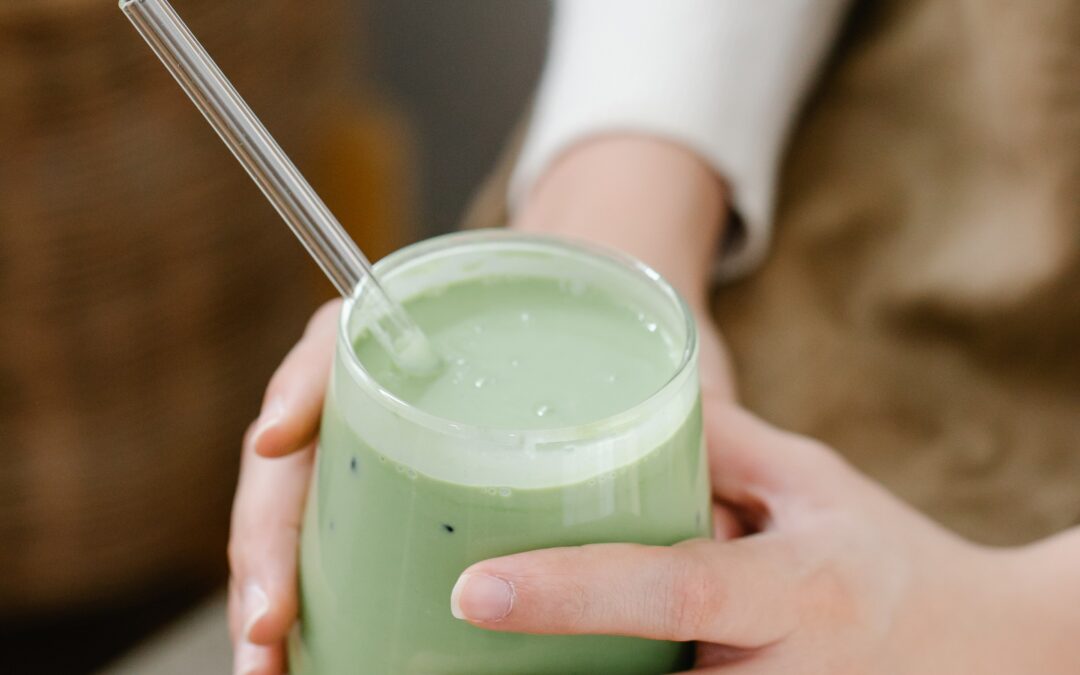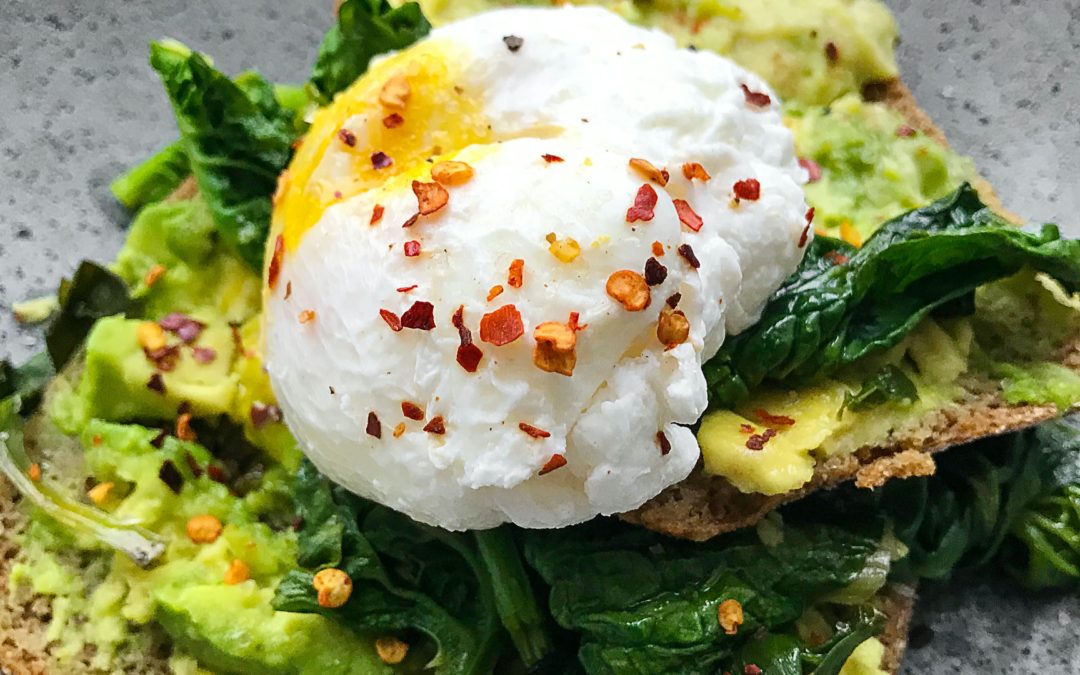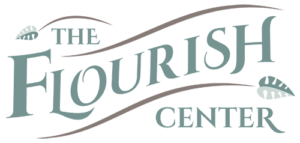
by Jen Owen, N.P. | Oct 20, 2022 | Flourish Team
Written by our new Functional Nutritionist, Peggy Fisher
Hello! I’m excited to join the Flourish Team and share a little about myself as well as how I can help you in your wellness journey. My mission is helping others discover the transformative power of food to achieve their personal health goals.
As someone with a lifelong interest in health and wellness, I was troubled to see the increasing frequency of chronic diseases, particularly when medical conditions began affecting family and close friends. Observing how dietary changes were able to resolve long standing health conditions for the people closest to me has made me a firm believer in the power of food!
The science is now convincing that our food choices and nutrition are a key factor in our health. Poor nutrition is considered the leading cause of chronic disease in the U.S. and worldwide. The good news is that we have the power to improve our health with simple changes to the food choices we make every day.
All of this made me curious and hungry for knowledge. So, after a successful executive level career in business and marketing, I followed my passion for nutrition and went back to school for my Master’s in Human Nutrition and Functional Medicine, where I graduated with honors.
Functional nutrition is a science-based approach that recognizes how the body works as an interconnected system, beginning at the cellular level. It looks at the underlying causes of health conditions and chronic disease, and how to restore optimal function through food, targeted nutrients, and lifestyle. Nutrition recommendations are personalized to consider an individual’s overall health, food preferences, lifestyle, and goals.
Do you have a health condition or symptoms that could benefit from nutrition therapy? If you are experiencing any of these conditions or symptoms, nutrition therapy can be helpful:
Anxiety
Arthritis
Autoimmune conditions
Bloating & constipation
Brain fog
Depression
Diabetes or Pre-Diabetes
Elevated blood pressure
Elevated cholesterol
Fatigue
Gastrointestinal discomfort/disorders
Headaches
Joint pain
Menopause symptoms
Polycystic ovary syndrome
Thyroid disorders
I’d love to work with you and hear your story. Together we’ll review your health history, current symptoms or challenges, dietary habits, and goals, and then begin an approachable plan to address your needs and optimize your health. There’s no judgment – just personalized dietary coaching, targeted nutrients, and recommendations for incorporating healthy cooking and lifestyle changes into busy schedules.
Use this link to schedule a free 20-minute discovery call. Ready to move forward? Use the code “Flourish2022” for a 25% introductory discount on all services booked through the end of the year. Let’s do this!
~Peggy Fisher, Functional Nutritionist

by Jen Owen, N.P. | Oct 6, 2022 | Integrative Medicine
Shared by Jen Owen, N.P., the Flourish Nurse Practitioner
This past week, I was treating a teen for some possible nutrient deficiencies. I was looking in Rosemary Gladstar’s book, “Herbal Healing for Women”, and I was reminded of her wonderful nutrient suggestions for teenagers. Rosemary is my first and favorite herbal teacher, so I deeply trust her suggestions.
Rosemary was feeling frustrated because her teenage daughters were skipping breakfast every day. The smoothie below was the compromise she made with them, and she felt good sending them off every day with a shake full of protein and calcium.
The others are ideas for teens who might need some extra boosts.
I wanted to share them with you today, because I thought many of you might be wanting to boost up your teens. And, of course, these things are great for other aged humans as well.
High Calcium Protein Shake
1 cup milk of choice
1 cup nonsweetened juice (experiment with different flavors)
1-2 bananas ( freeze ripe bananas for a thicker, creamier shake)
1/4 cup frozen strawberries (or any fresh fruit when it’s in season)
1/4 cup yogurt
1 teaspoon bee pollen
1 scoop protein powder (dose per product instructions)
2 teaspoons spirulina
1/2 teaspoon pure vanilla extract
Rosemary says, “There are infinite varieties to this basic shake. Sometimes I add frozen orange juice for an Orange Julius—like shake. Sometimes I use juice in place of milk. I’ve found a dash of pure vanilla extract always enhances the flavor of the shake.”
Spirulina
A simple blue-green algae, spirulina has been used for thousands of years as a high-power food source. Some 60-70 percent protein by weight, it is considered the highest source of digestive plant protein and is second only to dried whole eggs when compared with animal forms of protein. It is also a remarkable source of vitamin A, calcium, the B vitamins, and chlorophyll. Convincing people to try this green algae in powder form is often an ordeal, though it’s easily camouflaged (except for the unmistakable dark green color) when blended into fruit and vegetable juice. Spirulina is also sold in easy-to-take tablet form. The general dose is two tablespoons of powdered spirulina, or six tablets daily. Your teenager may find the capsules much more appealing than the powdered form.
Bee Pollen
Another of the bee’s little gifts, bee pollen is a concentrated source of nearly all known nutrients. It is a complete protein, containing all twenty-two amino acids, and it has high levels of the twenty-seven different minerals, enzymes, and coenzymes, including vitamin B1, B2, and B6, pantothenic acid, folic acid, vitamin C, and the fat soluble vitamins A and E. Rosemary finds the pollen delicious, but not every teenager does. It is easy to camouflage it by mixing it in blender drinks or stirring into cereal. The suggested dosage is about one-fourth teaspoon daily. Because there is a small percentage of people who are allergic to bee pollen, it is best to test your teenager’s sensitivity to it by having them take just a small dose to begin with and then increase it with time. If they suffer from allergies, you may wish to consult an allergist before they take the bee pollen.
Seaweed
Seaweed is an excellent food source and supplement to the diet, especially for teenagers suffering hormonal imbalance. Seaweeds provide concentrated trace minerals and are a marvellous source of the natural biochelated iodine so necessary to the function of the thyroid gland. Most seaweed provides the building blocks needed by the endocrine glands to manufacture necessary hormones. Seaweed is also generally high in calcium (one tablespoon of hizike provides more digestible calcium than an eight-ounce glass of cow milk). Seaweed can be incorporated into many foods or the capsules can be worked into a daily health program. The dosage varies, depending on the type of seaweed. Kelp is the most common seaweed available and easily found in capsulated form. However, kelp is also the “fishiest” and strongest-tasting of the seaweeds. Many of the other, lesser-known seaweed are very mild and pleasant tasting. All are easily found in natural food stores, gourmet shops, and grocery stores specializing in Asian foods. When taking seaweed in capsules, a dosage of ten to twelve capsules a day is generally suggested. Though this may seem like a lot of capsules, remember that eating seaweed the way is like eating salad in capsules. You would have to ingest a lot of those capsules to get all your greens!
Liquid Floradix Iron or NatureWorks Herbal Iron
Floradix is a liquid vitamin mineral formula made from organic herbs and vegetable gathered in the high mountains of Europe. It is available in natural food stores throughout the country. Rosemary has recommended it for years because it is such a highly concentrated and effective formula and is readily available. It is also pleasant-tasting, so people find it enjoyable to take. Liquid Floradix with Iron is an excellent source of digestible vitamins and minerals and biochelated iron. It helps stabilize energy and mood swings, and regulates the menstrual cycle. NatureWorks Herbal Iron is another liquid vitamin/mineral formula frequently found in natural food and herb stores. It is quite tasty and comparable to Floradix in quality.
If you’d like to learn more from Rosemary, check out her many books.
If your teen requires more support, I would be happy to see them in my clinic. ~Jen Owen, N.P.

by Jen Owen, N.P. | Sep 29, 2022 | Flourishing Nurses
Part of our mission here at Flourish is to help nurses start and grow their own businesses. Nursing education is holistic in nature and quite intensive, which makes nurse coaches powerful additions to healthcare teams.
We are pleased to help a nurse coaching in training with his clinical hours.
Here is what John Piazza DeDonatis, RN told us about his work and his generous offer to 6 of our readers:
Are you yearning for that feeling of invigoration that you once had?
Or, are you wanting to simplify your life by making some practical changes to your health?
If you have been struggling with either achieving a specific health goal or even identifying a challenge, you may benefit from working alongside a Nurse Coach.
A Board Certified Nurse Coach avoids diagnosing and treating someone, but rather listens intently to the person’s whole story and works alongside them to identify barriers and create an attainable goal together.
A nurse coach can utilize health assessment tools and strategies to help someone pinpoint which aspect of their health needs focus and what is most important to them.
My name is John, my family and I live in SW Portland under the rule of our little dachshund named Chili. We love hiking together and picnics in the park and I enjoy both mountain and road biking in my free time.
I’ve been a bedside nurse for over eight years in just about every hospital department including Emergency and Critical Care. I currently work at St. Vincent’s within the Critical Care department and I’m in the process of becoming a Board Certified Nurse Coach through the Integrative Nurse Coach Academy.
My transition to Nurse Coaching stems from a desire to reach people on a deeper level to achieve better lifelong outcomes.
I am particularly interested in a “Food as Medicine” approach and incorporating personalized physical exercise.
In order to complete my education program and sit for the board exam, a minimum amount of coaching hours must be completed.
I’m offering 4 free Nurse Coaching sessions to the first 6 people to reach out to me.
And, if I am unable to work with you now, I would love the opportunity further down the road.
Our time together could range anywhere from 20 to 60 minutes via virtual conference or telephone.
Please email me at jpiazzadedonatis@inursecoach.com with any questions you may have.
Thank you for your time,
I am eager to hear your story and work together on achieving your personal health goal.
~John

by Jen Owen, N.P. | Sep 16, 2022 | Flourish Team
Written by our new Emotional Wellness and Alignment Coach, Erin Chourey
Welcome friends, colleagues, and comrades! I feel so blessed to be here in this moment, alive and well, writing this first blog to share my new endeavor with you all. We’ve all been through so much change these past few years and we are all continuing to learn, grow and evolve in ways we may never have even imagined before!
As for me, before the lockdown in March 2020, I owned a business, Skyheart Aging, supporting individuals, families and professionals with the aging process as a Care Manager, a Coach and a Death Doula. As engaged as I was with this work, I promptly needed to turn my attention toward my child at home to support him with on-line school during the first year of the pandemic, which shifted my focus quite a bit, as it did for so many of us. I basically stopped doing that work.
During the initial months of this time, a colleague friend gave me a tip that a mental health start up business, Lyra Health, was hiring Certified Coaches to provide a Cognitive Behavioral approach of coaching to clients on-line. This job was a true gift because I was able to work with the flexibility and abundance I needed, as the demand for mental health support increased so steadily in our world. Lyra’s clients are big companies such as Google, Starbucks, Facebook (now Meta), Nike, etc. and the employees of these companies were feeling more stress, anxieties, struggles with depression, difficulties with relationships, understanding their emotions and processing life’s uncertainties than ever before.
To me, ‘The Great Pause’ in the beginning of the pandemic felt like the world really slowed down in a sense. Although it was disorienting as our reality changed, it also felt re-orienting to have more space and time to focus on what was essential and most important to us. Of course, we experienced shocking panic and fear of getting sick, some of us getting sick and staying sick, grief at the loss of those we love dying, and social isolation that re-calibrated our social needs in different ways.
As time went on, we began to acclimate to the constancy of change and things not being in our control. Many of us began to realize that the way of living we considered “normal” was not returning. More recently, some things in life have resumed with a sense of familiarity of how we previously functioned in our lives pre-pandemic, and we continue to confront personal and collective challenges, to cope, to awaken, to unearth, to heal, to adapt to new normals, and to evolve to meet the challenges of our time.
So, here we are. Here I am, beginning a new chapter in my work with a renewed sense of purpose in this world, along with a perpetual curiosity of what we all need to live truly meaningful lives. My business is now Erin Chourey, LLC, Emotional Wellness and Alignment Coach. I am focusing on supporting my clients on their personal growth journey to tune inward, to regard their emotions as messengers, to learn to meet themselves and others with greater compassion and to clarify their values as guideposts to align their intentions, goals and dreams in wholeness. I’ve seen so many of my coaching clients make significant progress toward feeling better, and become more clear about who they are, what they want, when they are going to make it happen, where they need support and why it’s important to them.
One way we can think of what my coaching can do for you is this thinking of it as a “Tuning up of Your Inner Circuitry.” This begins with a question of how do you currently function and how do you want to function? Let’s consider it like getting your car tuned up at the shop after an eventful summer of roadtrips before the winter months kick in:
First, we open the hood to take a look at what’s happening inside. We can call this “going inward” or becoming mindful by bringing attention to your inner workings, or getting an overall picture of what’s under the surface and what attention it needs from you. We might notice that the ‘spark’ plugs need cleaning or replacement, bringing more joy into your life. We may see that the oil needs to be changed for a smoother running engine, shifting your mindset or thoughts to liberate pathways. Likely, we will need your fuel and fluids filled or topped off, nourishing your energy and regulation tanks. When you take care of these parts, you can fire your engine back up and listen to it purr, feeling good that you have met yourself with respect and compassion and given yourself the attention and love you need. You might then feel how all these important elements function together to align to get you where you want to go. Finally, you can collect and organize the tools you have learned to use and have them ready to pick up when you need them, for the next tune up or for when something in the system needs your attention again.
It will be my pleasure to be your partner in this tuning up process! I will be with you each step of the way as you tune up your body, you mind, your heart and your spirit and will sit in the passenger’s seat when you are ready to drive. The destination is yours. I will help you navigate and keep you company while you focus on the road in front of you. If you still aren’t sure where you want to go, we will figure that out too, and test it out together, until you feel ready to drive yourself in that direction confidently on your own!
I’m offering sessions both online an in-person at The Flourish Center. Use this link to peruse my website and schedule your free 30-minute consultation.

by Jen Owen, N.P. | Aug 30, 2022 | Food Medicine
Written by our Medical Assistant in the Flourish clinic, Martine:
Hi everyone! Jen has allowed me to write a blog this week to discuss something I’m really passionate about: breakfast!
Some of you know this but before I started working for Jen, I was her patient. Initially I came to see Jen because I was so exhausted all the time. Sometimes I would sleep from 7pm to 7am and still slug through my day as if I hadn’t slept a wink.
I had new and stubborn abdominal fat that I assumed was just the pandemic weight that most of us seemed to gain. And my mood was just…off. I consider myself a happy, positive person but I felt like there was a dark cloud hovering above me that I just couldn’t shake.
After some testing, Jen diagnosed me with insulin resistance. She told me that one of the most important things you can do to help this process is eating protein. You want to eat protein every few hours throughout the day, eat a high protein breakfast, and always have protein at your meals and with any carbs that you eat. By doing that, you’re going to stabilize your blood sugar level in your blood and you’re going to reduce the insulin resistance for those cells.
The other thing that really helps do this is healthy fats.The right fats increase metabolism, stimulate fat burning, cut hunger, optimize your cholesterol profile and can reverse type 2 diabetes and reduce your risk for heart disease. There’s a great book you can read to learn more by Dr Mark Hyman called “Eat Fat, Get Thin”.
Here are three easy breakfasts I make for my husband and myself. They’re all very customizable based on your dietary needs and preferences. All three do include avocado. If you’re not a fan and you need another way to get some good fat, try having some walnuts or Brazil nuts on the side. If you can have dairy, Greek or Nordic yogourt is also a great choice. A drizzle of flax or hemp oil would also be amazing.
Eating breakfasts like this have really been a game changer for me. I have more energy, I’m losing weight, and feeling so much better!
Air Fryer Classic Breakfast
Dairy-free, gluten-free, can be soy-free, can be vegan.
This is a good one for when you’re in a hurry—everything comes together in the air fryer with very minimal effort. You could do the same thing in a regular frying pan as well!
What you’ll need:
Frozen sweet potato fries/tots/cubes
Breakfast sausage (made of whatever you like! Pork, turkey, or meatless)
1-2 eggs depending on how hungry you are
1/2 of an avocado or guacamole
Put the sweet potato and the breakfast sausage in the air fryer at 390 degrees for 5 minutes. You don’t need to add any oil. After that, crack two eggs into the air fryer and season everything with salt and pepper. Feel free to add other spices like paprika, garlic, turmeric, chilli powder, etc.
5 minutes later the egg whites should be set but the yolks should still be soft. Scoop everything out of the air fryer and top with avocado/guacamole.
Lentil Oatmeal Bowl
Dairy-free, glute- free, soy-free, vegan.
This is another easy one and leftovers store pretty well in the fridge. Adapted from the beautiful: https://ohsheglows.com
What you’ll need:
⅓ of a cup red lentils
¼ of a cup oatmeal
1 ½ cup of broth
Combine lentils, oats, and broth in a pot. Bring to a low boil and then reduce the heat and simmer uncovered until thickened. Add any herbs and spices you like. You could add tempeh bacon or turkey bacon crumbles as well.
Top with whatever you like! I personally mix in some nutritional yeast, some arugula, and then top with avocado.
White Bean + Avocado Toast
Dairy-free, soy-free, vegan, can be gluten-free.
Avocado toast is so good on it’s own but blending in some white beans gives it a big extra boost of protein.
What you’ll need:
Cooked and cooled white beans
An avocado (you can use just half if you’d prefer)
Greens of your choice
Bread of your choice
Mash up white beans and avocado. Spread it on your toast and top with greens and a drizzle of oil and spices of your choice. You could also add other veggies like a slice of tomato, or a fried egg. I like to make a little tofu scramble and eat it on the side (that would obviously negate the soy free part).
I hope this helps you see that breakfast can be fun and delicious while supporting your health and wellness goals!
~Martine Fleming, M.A.








Recent Comments